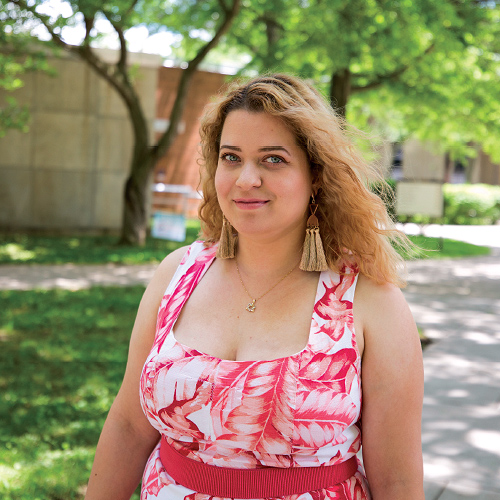Internship course equips students to move forward in their careers
At Excelsior College, virtual and in-person internships are a way for adult students to build on their education as well as to gain experience in the workplace and explore different career opportunities. Internships can even — as they have in some instances — serve as a stepping stone into new jobs.
Excelsior’s internship program, the undergraduate course INT 400, officially began in fall 2018 with the first cohort of four students taking part in virtual internships, but the idea for an internship program started long before. Will Trevor, faculty program director for undergraduate business programs and chair of the internship committee, says the idea predates him joining the college in 2016, but he took the lead turning the idea into reality. In early 2018, Trevor and a committee of other faculty program directors and subject matter experts developed the course, making sure its curriculum followed the National Association of Colleges and Employer’s career competencies, which include critical thinking, collaboration, professionalism, and communication, among others, that help ensure career readiness.
After the successful pilot, the INT 400 course was made available over 15 weeks in the Fall I, Spring I, and Summer I trimesters. Students enrolled in the course are required to find their own internship and complete 135 hours of work during the trimester, including various academic and career-relevant activities. The interns also complete a final project relevant to their placement organization. Successful students gain 3 credits toward their degree, which is applied as elective credit. Currently, the internship is limited to students at the bachelor’s level, but a pilot may be in store for the graduate level. “The INT 400 Internship with Excelsior College is a powerful way for a student to boost their resume with an experience that adds value to their career,” Trevor says, “You can show a potential employer that you do have experience already.”
The students in the fall 2018 inaugural group took part in four virtual internships; three students were placed at the International Atomic Energy Agency (IAEA) in Vienna, Austria, and the fourth student worked as a social media intern at Excelsior College. Despite some challenges, such as time zone differences, all the students expressed satisfaction that the internship had provided a useful and valuable experience. The first cohort was so successful that a subsequent survey was sent to undergraduate students about their interest in the internship course. More than 800 students expressed interest in taking part in the program. Some of the successful interns from the fall 2018 and spring 2019 trimester cohorts include Ginger Hamblin, Patricia Dugger, Angela Cheek, and Tara Beers.
Ginger Hamblin Uses Her Internship to Gain Employment
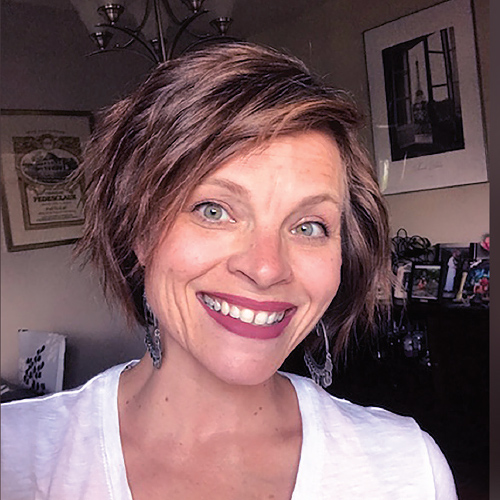 Ginger Hamblin, of Fort Hood, Texas, is pursuing her liberal arts degree with an emphasis in professional and technical writing with Excelsior. After taking a few years out of work to take care for her sons with special needs, Hamblin decided it was time to head back into the workforce, and knew she needed some experience along with a degree. That’s when she decided a virtual internship with Excelsior would fit in with her plans.
Ginger Hamblin, of Fort Hood, Texas, is pursuing her liberal arts degree with an emphasis in professional and technical writing with Excelsior. After taking a few years out of work to take care for her sons with special needs, Hamblin decided it was time to head back into the workforce, and knew she needed some experience along with a degree. That’s when she decided a virtual internship with Excelsior would fit in with her plans.
Hamblin enjoys writing papers, generating documentation, and exploring new technologies; she says it lets her explore her creativity. So, it was only fitting that she found an internship where she could practice her writing abilities and develop new technical skills. After registering for INT 400 and expressing interest in interning with someone at Excelsior, she was placed with Frank Crocco, then the director of the Excelsior Online Writing Lab (OWL). The OWL contains a variety of interactive multimedia activities, quizzes, videos, interactive PDFs, and games designed to help writers understand important concepts about writing.
During the three-month internship, Hamblin wrote posts for the OWL’s blog, “Hoot,” created infographics, and developed posts for the OWL’s Facebook page. Crocco reviewed and edited her work, and with the aid of other Excelsior staff working on the OWL, she learned how to use the WordPress platform and Canva, an online graphic design tool website. Hamblin says the experience working on the OWL was enjoyable and beneficial because she was “able to create what I wanted to create, and then got the feedback on how it could be improved, so that I can improve my skill.” She adds that, “I don’t think any experience is good or bad, it’s just what you make of it, and I took what I could from it.”
Hamblin used her experience interning with the OWL to apply for other internship opportunities. She says she included the Excelsior internship experience on her resume and posted it on LinkedIn to show potential employers that she is able to work virtually, independently, and can succeed without being micromanaged. She soon came across GenM, a company that matches candidates with virtual apprenticeships. She was matched with two businesses: one with a naturopathic doctor in Ottawa, Canada, and the other with an entrepreneur in Bainbridge Island, Washington.
Hamblin interned with the entrepreneur in Bainbridge Island, helping the businesswoman secure funding for a patent-pending product she was developing. Hamblin maintained the small company’s Instagram and Facebook accounts, wrote blog posts, and helped develop media kits. She also reached out to key influencers and donors to ask for their collaboration and donations. The best part, says Hamblin, was that before finishing the internship, she was offered a job with the company. “If I hadn’t done that [Excelsior] internship, I wouldn’t be where I’m at right now. So, I’m super happy,” she says.
Patricia Dugger Gains Real-World Experience from Her Internship
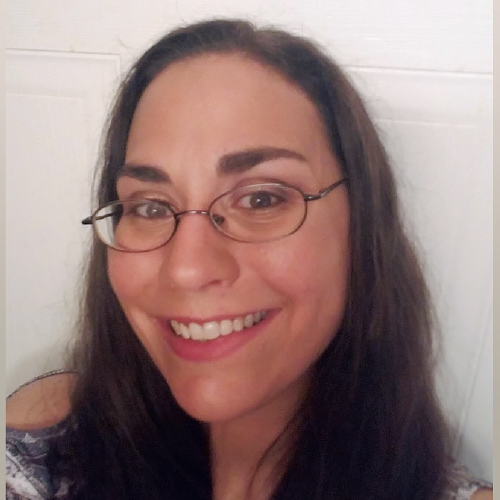 Patricia Dugger, of Havre de Grace, Maryland, is the coordinator of the fitness and wellness center on the Dundalk campus of the Community College of Baltimore County. She enjoys helping people and has an associate degree in general studies, focused in English and Psychology, from Harford Community College in Bel Air, Maryland. Dugger decided, however, that she needed to return to school to make a change from her current career. “My passion is in mental health. Entering this field would require specialized training that, unfortunately, would require me to come back to school so that I could actually do a complete and total career change,” she says. Dugger says she was interested in an internship because it would give her an inside look at the mental health field before she made a final decision about switching careers.
Patricia Dugger, of Havre de Grace, Maryland, is the coordinator of the fitness and wellness center on the Dundalk campus of the Community College of Baltimore County. She enjoys helping people and has an associate degree in general studies, focused in English and Psychology, from Harford Community College in Bel Air, Maryland. Dugger decided, however, that she needed to return to school to make a change from her current career. “My passion is in mental health. Entering this field would require specialized training that, unfortunately, would require me to come back to school so that I could actually do a complete and total career change,” she says. Dugger says she was interested in an internship because it would give her an inside look at the mental health field before she made a final decision about switching careers.
Dugger did not complete a virtual internship; rather, she was one of Trevor’s first students to complete an in-person internship. Trevor says Dugger’s internship was an important milestone in the internship program because it meant that INT 400 was flexible and customizable enough for students who wanted either a virtual or real-life experience. It could be applied to students with different lifestyles, in different parts of the country or world, and looking to fulfill specific needs.
Dugger searched websites for interning opportunities with rehabilitation and mental health facilities in her area and after several possibilities fell through, Dugger landed an internship with Key Point Health Services based out of Aberdeen. The organization is a private, non-profit mental health care facility providing treatment for a wide range of psychiatric and psychological health concerns. Computer training, counseling, academics, domestic, janitorial, ceramic, clerical, and physical education classes are offered in the psychiatric rehabilitation programs, geared toward people transitioning from the hospital back to the community.
Dugger says “What you put into your internship is what you’re going to get out. If you don’t go in with a positive attitude … you’re not going to get anything out of it. You have to actually do the work.” As for her, Dugger gained valuable experience working directly with people with mental health issues. She assisted with Key Point Health Service’s daily operations, but also helped the rehabilitation counselor in the rehabilitation programs by passing out papers and reading parts of the day’s lesson. She even filled in for a counselor one day and taught a lesson on effective communication.
As the final project part of the INT 400 course, Dugger focused her research and work around sound therapy. In sound therapy, or sound healing as it is often called, sounds produced by the human voice, music, or other special instruments are used to help improve brain wave functions. Dugger focused her project on how music can be used to treat mental health disorders. After researching, designing, and selecting appropriate music, Dugger conducted a sound therapy session for clients in an adult psychiatric rehabilitation program. Dugger gave an overview prior to starting and provided art supplies, including paper, color markers, and color pencils, to those who wished to draw while listening for added stress reduction. The overall objective was to reduce stress and to support treatment and recovery goals.
From her project, Dugger learned sound therapy works best in smaller settings and recommended that Key Point Health Services conduct any future sound therapy sessions in smaller rooms with a limited number of participants. Dugger was so inspired by her findings that she has decided to conduct a larger study on the topic, perhaps when she pursues her master’s degree in applied psychology at Walden University. She hopes to one day work in a therapeutic setting in crisis intervention.
Angela Cheek’s Internships Give Her an Edge Over the Competition
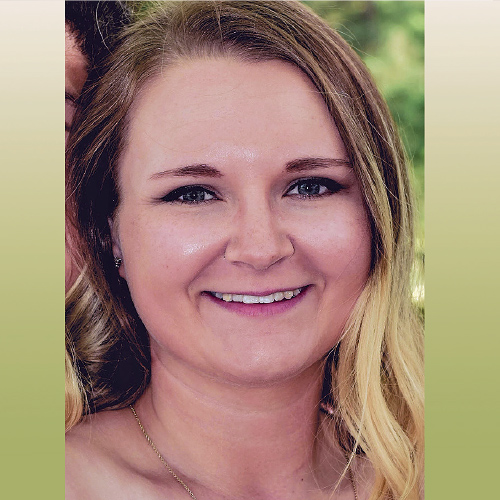 Angela Cheek, of East Moline, Illinois, is a mail carrier for the United States Postal Service, but her goal is to develop and design websites. She is pursuing a Bachelor of Science in Information Technology with Excelsior because, she says, the online format allows her to obtain a quality education while being able to balance life, work, education, and maintain a more flexible schedule. Since she enjoys Excelsior’s online course setup, Cheek thought she would pursue a virtual internship with the College. “I felt that participating in an internship would give me valuable experiences and skills that I couldn’t get anywhere else, and use them towards my future career field in information technology,” she says.
Angela Cheek, of East Moline, Illinois, is a mail carrier for the United States Postal Service, but her goal is to develop and design websites. She is pursuing a Bachelor of Science in Information Technology with Excelsior because, she says, the online format allows her to obtain a quality education while being able to balance life, work, education, and maintain a more flexible schedule. Since she enjoys Excelsior’s online course setup, Cheek thought she would pursue a virtual internship with the College. “I felt that participating in an internship would give me valuable experiences and skills that I couldn’t get anywhere else, and use them towards my future career field in information technology,” she says.
Cheek had the opportunity and the necessary amount of elective credits available to take two internships, the first in fall 2018 with the International Atomic Energy Agency in Vienna, Austria. The IAEA is an international organization that seeks to promote the peaceful use of nuclear energy, and to prevent its use for military purposes. In this internship, Cheek created a survey she then sent to nuclear program directors at universities across the United States. “Once I collected the survey results, I analyzed the data to determine what kind of nuclear programs would be the most effective,” she says. With the results, IAEA chose a nuclear program that fit its needs based on price, materials, and other data that Cheek uncovered.
Cheek’s second internship took place during spring 2019 with Move the Mindset, an organization based in Louisiana whose mission is to promote social justice. Cheek worked with a member of the organization to develop a website that showcases Move the Mindset’s mission, campaigns, and contributions. During the experience, Cheek learned how to use the WordPress platform, which she says was somewhat of a challenge. In the end, she says she was able to create a website that was “functional and easy for someone to make adjustments later on if need be.”
“Two of the main skills I acquired from my internships are data analysis and web design and development,” says Cheek, noting that these are important skills in the IT field. She says that having participated in the internships with the IAEA and with Move the Mindset has “given her an edge” over others who are going into the same career field as her.
Tara Beers Uses Her Internship to Improve Her Resume
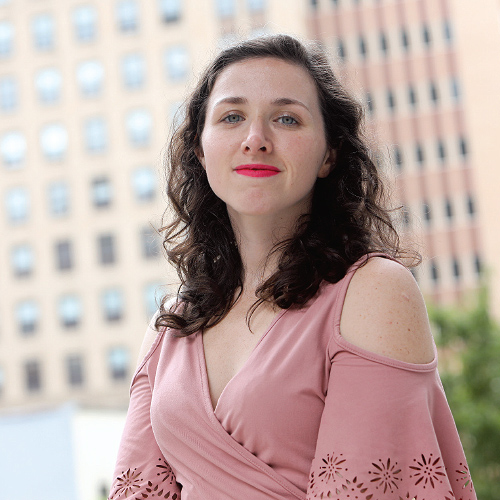 In spring 2019, Tara Beers, of Gambrills, Maryland, graduated from Excelsior with a Bachelor of Science in Psychology. She is a Korean language analyst with the U.S. Navy, but in the future, she wants to be an educational psychologist. She would like to work in schools to help create a more socially and emotionally healthy environment for children, teachers, and administrators.
In spring 2019, Tara Beers, of Gambrills, Maryland, graduated from Excelsior with a Bachelor of Science in Psychology. She is a Korean language analyst with the U.S. Navy, but in the future, she wants to be an educational psychologist. She would like to work in schools to help create a more socially and emotionally healthy environment for children, teachers, and administrators.
Originally, Beers joined the Navy because her husband was also in the Navy and his experience seemed like something she might also be interested in. A few years in, while she was pregnant and reading parenting and psychology books, Beers rediscovered a love of psychology.
“When I was little, I was always curious about what was causing people to behave certain ways … I was always curious why someone was doing that, and why someone was acting out, or why they were going out of the way for certain things,” she explains. Excelsior’s online bachelor’s program fit in with Beers’ busy schedule and was especially helpful since she has ADHD. Attending college online was a good option because there was no requirement to be in class a certain amount of time and the format allowed her to focus on her assignments one at a time.
Beers thought a virtual internship would be a good experience; it would allow her to gain credits toward her degree and also allow her to build up her resume. “I saw it as a good opportunity to … gain skills and experiences that would help me move from the job I’m in to a job in the future that would be closer to what I want to do,” she says.
During her time as an Excelsior College social media intern, Beers analyzed social media traffic and researched different methods to increase online engagement. For instance, she experimented with different blog posts, images, Facebook posts, and other content to see what resonated best with audiences. She studied the various school Facebook pages Excelsior had at the time to see whether combined pages would function better for the College. She also explored competitor institutions to see how they used social media. “My internship experience taught me the complexities of internet engagement, the positive outcomes that come from engaging others online, and helped me learn a new skill and gain connections,” says Beers.
Beers hopes to use what she learned from her internship as she progresses in her career: “In the future when I change careers, I believe the internship experience and the connections I made will help me.”
The Importance of an Internship Program
Participating in an internship will have an impact on the students beyond the trimester. “You [the student] are going to develop a range of skills and competencies that will benefit you in the workplace and aid you in your career,” says Trevor. He has identified five specific advantages he believes can be gained from an internship: it allows for career exploration, it’s a powerful resume builder, it can be considered an extended job interview, it allows development of a professional network, and it’s an opportunity to gain career-relevant skills. An internship lets students see whether they need to improve certain skills and helps them determine if a certain career is a good fit. It can also help add experience to a resume, he says.
Based on the experiences of the fall 2018 and spring 2019 cohorts, Trevor believes INT 400 has been valuable in helping students explore careers and improve their resumes, and there are plans to expand the program in the future. As evidenced by the feedback received, many students have seen much success from their internships so far. Trevor expresses enthusiasm for the program, saying that “Ultimately, the real-world experience gained from an internship will help these students stand out in a crowded employment market and enable them to smash their job searches.”
 Ginger Hamblin, of Fort Hood, Texas, is pursuing her liberal arts degree with an emphasis in professional and technical writing with Excelsior. After taking a few years out of work to take care for her sons with special needs, Hamblin decided it was time to head back into the workforce, and knew she needed some experience along with a degree. That’s when she decided a virtual internship with Excelsior would fit in with her plans.
Ginger Hamblin, of Fort Hood, Texas, is pursuing her liberal arts degree with an emphasis in professional and technical writing with Excelsior. After taking a few years out of work to take care for her sons with special needs, Hamblin decided it was time to head back into the workforce, and knew she needed some experience along with a degree. That’s when she decided a virtual internship with Excelsior would fit in with her plans. Patricia Dugger, of Havre de Grace, Maryland, is the coordinator of the fitness and wellness center on the Dundalk campus of the Community College of Baltimore County. She enjoys helping people and has an associate degree in general studies, focused in English and Psychology, from Harford Community College in Bel Air, Maryland. Dugger decided, however, that she needed to return to school to make a change from her current career. “My passion is in mental health. Entering this field would require specialized training that, unfortunately, would require me to come back to school so that I could actually do a complete and total career change,” she says. Dugger says she was interested in an internship because it would give her an inside look at the mental health field before she made a final decision about switching careers.
Patricia Dugger, of Havre de Grace, Maryland, is the coordinator of the fitness and wellness center on the Dundalk campus of the Community College of Baltimore County. She enjoys helping people and has an associate degree in general studies, focused in English and Psychology, from Harford Community College in Bel Air, Maryland. Dugger decided, however, that she needed to return to school to make a change from her current career. “My passion is in mental health. Entering this field would require specialized training that, unfortunately, would require me to come back to school so that I could actually do a complete and total career change,” she says. Dugger says she was interested in an internship because it would give her an inside look at the mental health field before she made a final decision about switching careers.  Angela Cheek, of East Moline, Illinois, is a mail carrier for the United States Postal Service, but her goal is to develop and design websites. She is pursuing a Bachelor of Science in Information Technology with Excelsior because, she says, the online format allows her to obtain a quality education while being able to balance life, work, education, and maintain a more flexible schedule. Since she enjoys Excelsior’s online course setup, Cheek thought she would pursue a virtual internship with the College. “I felt that participating in an internship would give me valuable experiences and skills that I couldn’t get anywhere else, and use them towards my future career field in information technology,” she says.
Angela Cheek, of East Moline, Illinois, is a mail carrier for the United States Postal Service, but her goal is to develop and design websites. She is pursuing a Bachelor of Science in Information Technology with Excelsior because, she says, the online format allows her to obtain a quality education while being able to balance life, work, education, and maintain a more flexible schedule. Since she enjoys Excelsior’s online course setup, Cheek thought she would pursue a virtual internship with the College. “I felt that participating in an internship would give me valuable experiences and skills that I couldn’t get anywhere else, and use them towards my future career field in information technology,” she says. In spring 2019, Tara Beers, of Gambrills, Maryland, graduated from Excelsior with a Bachelor of Science in Psychology. She is a Korean language analyst with the U.S. Navy, but in the future, she wants to be an educational psychologist. She would like to work in schools to help create a more socially and emotionally healthy environment for children, teachers, and administrators.
In spring 2019, Tara Beers, of Gambrills, Maryland, graduated from Excelsior with a Bachelor of Science in Psychology. She is a Korean language analyst with the U.S. Navy, but in the future, she wants to be an educational psychologist. She would like to work in schools to help create a more socially and emotionally healthy environment for children, teachers, and administrators. 